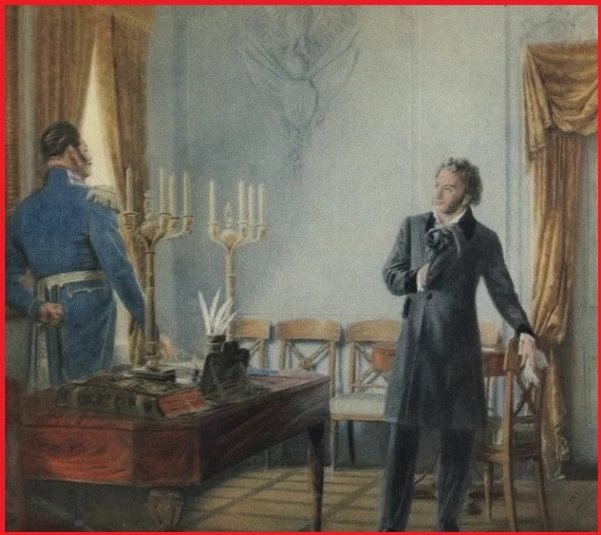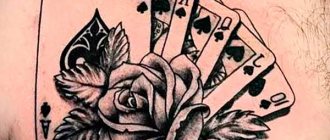Imprisonment - a serious challenge for anyone who is not used to the confined space and quite specific society. It is especially cruel for first-time offenders, i.e. people serving their first sentence.
TDF, detention center, court hearing, sentence, transfer, quarantine, settlement in the area - at each of these stages mistakes are possible, leading to truly disastrous consequences. If you make one wrong action even through ignorance, you can get into the caste of untouchables ("offended"), from which there is no way into the ranks of "men" and even more "blatnye".
About the prison hierarchy
Prison society is deeply hierarchical. This imposes a rigid framework on the system of inmates' relationships. Above all, it is the inmate's "suit" that matters:
- Convicts .
The backbone of the prison community, a kind of local elite. The criminals enjoy the maximum number of privileges, but they are also subject to many restrictions. "Understandably, they are not allowed to work, obey the administration, or clean up, and in the past, thieves in law were not even allowed to have families. Blatnye stick to strict rules, and if you learn them, there should be no problems. These people are interested in maintaining order in the cell, and from their ranks are appointed pozolozhenniks and supervisors, designed to prevent lawlessness. It is best to treat them with respect, but not with subservience.
- Men
The largest class, so to speak, of the people. Men work quietly, live by the common rules and expect to return to normal society as soon as possible. If a first-timer manages to avoid mistakes at the start, he usually becomes a man. It's the ideal position.
- Offended (downcast).
And these are just the people who have made these very mistakes (with the exception of voluntary homosexuals or those sitting on articles for rape). Usually these are the wrong words and certain actions (stealing from one's own people, denunciating to the administration, communicating with other people from this caste). Previously, the ritual of "putting down" involved committing a homosexual act with a potential victim; now it is rare and predominantly in juveniles. In women's prisons and colonies, homosexual relations are not taboo at all.
- Goats (devils).
The accomplices of the administration, doing their dirty work for them in the hope of leniency. Being part of this group is low, so it is rare for anyone to cooperate with the administration voluntarily.
In every colony, regardless of the regime, whether it is "red" (with a brutal authoritarian order from the administration) or "black" (with a semblance of internal thief self-government) there is a much more branched hierarchy with many nuances that are not immediately visible.
The conclusion - keep your eyes and ears open at all times.
How to get "into the hut"
This is probably the most difficult part, getting the first person into the starting position. Fortunately, prison administrations are now trying to place prisoners in cells according to their "suit. This avoids conflicts from the first hours of detention, and newcomers can learn the prison rules in a relatively peaceful environment, without the pressure of authority.
When first entering both the cell and the barracks, the most important things are:
- Greeting
It is best to opt for a neutral variant like "Good evening", "Good health", "Peace/evening in the hut". It is better to refrain from pally greetings, especially with a hint of "suitability" (such as "Hello, men" or "Hey, guys").
- Proper behavior
Do not take a free "bunk" (bed) right away. You should ask if it is free and if it is possible to settle down. By the way, in the zone, they do not "ask" in the usual sense of the word, but "inquire" - it is also better to learn. If suddenly they throw a towel under your feet, you do not need to pick it up, just walk over. And if they say that this house is for "cocks", pretend that you are scared and a couple of times knock on the door demanding that they move you to another cell.
- Registration
A former inmate told me that the toughest propiska is in juvenile detention, where lawlessness is mixed with old-fashioned blatnoy concepts in explosive proportion. For misbehavior at the propiska can even be put down physically, and with a brutal beating. In adult prisons and prisons (of course, in the "right" ones), the registration is now reduced mainly to a conversation. The new inmate is asked who he is "in life," what he is in prison for, and so on. The questioning is usually initiated by the warden.
The main thing in prison is not to talk too much, avoid giving details or attributing non-existent criminal merits - the zone, like the will, is full of rumors, and the deception will be discovered very quickly. Be calm and polite, tell the truth - and the conversation with the warden will go well.
General rules of conduct for the newcomer in prison
It is best to spend the first few days studying the rules of the prison and not to talk to anyone unless there is a special need to do so. The exception is the guard himself, to whom you can and should ask questions. This is regarded positively: a person wants to live peacefully, in compliance with the unwritten rules.
First of all, you must remember the main tenets:
- Don't talk to a person before finding out their status.
It is not customary to shake hands in prisons, especially with strangers. What if it turns out that this person is an offender? It is not accepted in principle to communicate with them: you cannot touch them, sit at the same table, or use common objects. You can give something to the offended out of charity or in exchange for a favor, but to this thing can not touch. People of this "suit" are required to inform themselves about their status, so that strangers do not inadvertently take them for criminals or men.
- Do not trust anyone.
Sometimes other convicts themselves pry into the soul in order to have some fun and lead the first convict to some "joint". This is a sign of bad manners, there is no need to be frank. You can even report it to the warden, because the intrusive interlocutor can turn out to be a "rooster", that is, a secret informer of law enforcement or the prison administration.
- Do not take anything that is not your own.
It is strictly forbidden to take something from someone else without permission - it is stealing from one's own, that is, ratting. Remember: nothing is "nobody's property" in prison! If you need something (cigarettes, tea), ask the warden to allocate some from the common property. But this will have to be returned at least in the same amount!
- Talk less about sex.
One mention of oral sex can turn an honest man into an offended man. So it's best not to talk about your own sexual preferences and experiences at all.
- Don't shut yourself off.
This is the other side of the coin: if you do not answer questions and communicate in principle to anyone, it can be seen as arrogance. And in general, to withdraw into yourself, and even in such conditions, is devastating to the psyche.
- Don't gamble.
Even if you have a reputation as a poker master on the outside, on no account sit down to play with prisoners for fun. There is no guarantee that they will play with you fairly, and card losses are not forgiven. If you can not pay back the debt or comply with the wishes of the winner, you automatically become offended. Refuse is easy - just a simple "I don't want to.
- Share.
Today you received a handout, and soon it will be gone. Contribute something to the community, share with others - humanity is valued everywhere, especially where it is in short supply. Tomorrow they will help you.
- Be able to defend your own position.
Be polite, but not submissive. Try not to enter into conflict, let alone initiate them. Everyone wants to live a quiet life, with a minimum of problems. However, if you will be specifically "pushed around", demand to do some work (for example, cleaning the cell out of turn), to extort money, cigarettes or food, you need to fight back. If you are right, the other convicts will stand up for you, and you can call upon the referee and the overseer.
- Be careful about accepting gifts.
You should not accept gifts from other inmates until you are sure that this is done for friendly reasons (which is impossible to figure out in the first few days). Otherwise, you'll be asked to do some kind of favor in return (clean the cell, wash the dishes, do the laundry instead of the "donor"), and you won't notice how you'll turn into a "six" (a little-respected servant at the beck and call).
A forest is cut, a forest is chopped.
+++
Of course, I do not claim to be one hundred percent accurate in "chopping up" the text of the pastiche - let the "chips" down to the straws be collected for their next dissertation by Lipnitsky. The significance of the result according to the Pareto rule is already pinned on all one thing. That's one. Still, some details must be paid close attention, since they play an important contextual role and help reveal the concreteness of Pushkin's thought. That's two. I will also say that at the moment I do not know exactly which rhyming chronicle is meant in the pastiche. Several of Sergeich's works (and "Saltan," "The Horseman," "The House," "The Cockerel," and perhaps "Onegin") are so immediately suitable for this place. [No wonder Gnidopedr Vyazemsky mentioned the insertions in Onegin! - idohturov]). It will become clearer as the play progresses. These are three.
The basic conflict of "Svoyak" is providentially captured in this info-product - there is a hidden fist of the blue dog of the Empire, and a response stooges Sergeicha:

And there's an imperial emblem hanging on the wall!
And now about the important info-"chips" in the text of "The Last of the Proprietors".
1.The first detail is the motif of virginity, which is the second grain from Dr. Zaslavsky, which, alas, was not revealed to him. What is the "aforementioned virgin" Father-Gerbovy has in mind? At least two candidates for this position were listed at the beginning of his letter. And here is which one to choose, prompted by the supposedly English journalist in the phrase <<<< How did France try to make up for the bloody stain that stained the most melancholy page of its chronicle? >>> France, who has lost her "virginity" here, stands first also in the list given by Herb's client in the letter. This is the one to choose, and it is mentioned "above" the second, the known virgin Jeanne. And if you replace the particular France with "***", it becomes obvious that the "virginity" lost to the highest, "Du-Lis", Herb's power. And to make it clear that this is how the topic of virginity should be thought of, and not in the gynecological sense, Sergeich fired the control shot by mentioning the loss of "virginity" by the Laureate.
What does "***" mean now? And it is clear to a Siberian mouse that the Russian Empire.
At what point did the Russian Empire lose its "virginity"? For example, when the change of a figure on the throne somehow resulted in a violation of the law and a corresponding loss of legitimacy? Forgive me, Lord! There have been so many times that you could be wrong to enumerate. False Peter-1, the fates of Peter-2, Peter-3, Ivan-5, Paul-1 - take your pick!
What other loss of "virginity" could there be by a higher power? Violation of honest and noble word, given by a good and decent nobleman, and similarly the father, in short, the main navel of the empire.
2.One hundred percent confirmation that by summoning Dulis Sergeich is masking a special/action of the imperial gabukha is, first, the phrase "and a summoning of good and honest Dulis, if it became *** known..." and, second, the phrase "the sword of a ticklish nobleman".
The first is information about the secrecy of the operation, the second - about the executor, a nobleman with a ticklish sword, i.e. about Agent 007 of the style of the time.
3.The third detail is "Not a single *** Dulis is seen at the court *** from Charles VII all the way to Charles X.". Charles X is a figure contemporary to Alexander I. The meaning of this phrase is obvious - there was not a single such Coat of Arms at the throne of the Russian Empire until Sasha-1. What does this mean? That this one, which after the time of Charles X and Sasha-1 respectively, Coat of Arms father [of the people], i.e. the current Emperor Kolya-1, is not Romanov. Hence it follows that it is more likely that by "loss of virginity" Pushkin means exactly loss of legitimacy, and not a violation of the word.
A rather curious picture emerges, doesn't it?
+++
As an appetizer I will not deny myself the pleasure (it's a sacred thing to have a good laugh!) to quote the already mentioned, but classically cast in the professional "Pushkinovedeniya" granite empty blah-blah-blah: <
So let Lipnicki and Co. remain in perpetual speculation as to "What did Pushkin need to compose pastiche for?».
Truth is indifferent to tons of their polyadjective words about the architectonics of Svoyak.
Prison Hygiene Rules
The rules of personal hygiene in places of detention are elevated almost to the rank of religion. The first mover is evaluated not only on merit and conversation, but also on cleanliness. This is logical: in a confined space, any violation of hygiene is felt and smelled especially brightly.
After each visit to the toilet carefully wash your hands. If it is noticed that you shook hands with someone without performing this elementary procedure, you may be called to account. If you dropped on the floor any thing, it should be washed, but the food from the floor have categorically impossible to pick up.
You can not eat, cook food and tea at a time when someone is in the toilet. Conversely, if fellow inmates are sitting at the table, you should refrain from going to the toilet. Every day you should wash your feet, keep your belongings clean, and check yourself for parasites.
By following the established rules, you can make the months or years spent in captivity a little more bearable. Most of the people in prison are ordinary people, and you have to learn how to interact with them, even in extreme conditions.
Prison Tattoos
In the criminal world, the prison tattoo has for centuries been the "calling card" of its owner, a means of conveying information. In the criminal world tattoos divided people into "friends" and "strangers". The underlying tattoos contained the criminal's entire background: the number of convictions, the article and term, the relationship with the authorities, the character and position in the criminal hierarchy, sexual orientation and profession.
In the course of time it became common for officers of order to interpret prison tattoos, tattoos were used to determine the characteristics of a criminal, the catalog was used to reconstruct who the deceased was or when a suspect was needed to be identified. Since the 1930s in the Soviet Union the situation began to change and much more attention began to be paid to tattoos. Soviet criminals were second only to members of Chinese triads or Yakuza in the number and variety of tattoos, chosen and performed with meaning and skill. The Russian Interior Ministry had an extensive amount of information on tattoos collected in catalogs for official use only, under the "DSP" label. In the early 1990s, once classified information became public, thanks to the work of criminalist officers such as Dubyagin and Boldaev, who had studied the meaning of criminal tattoos thoroughly and had a vast number of drawings and photos in private collections:
"Tuxedo with Orders." Criminal tattoos are a kind of another language, overtly secret, social and politicized, closed off from uninitiated "freaks". A thief's body covered with tattoos, a peculiar "tailcoat with orders" covered with regalia, insignia of rank and distinctions, conveys certain information to the same initiated into the secret meaning of the depicted. The thief's entire service record and all the details of his biography are embodied in the tattoos: a "dossier" and a "service record", a kind of daily communication tool.
The prison tattoo, which belongs to the world of thieves in law, makes the bearer immune to any actions from the outside that are not approved by the thieves' "concepts". It is well known that a thief in law who has appropriated his tattoo is brutally killed in "places not so distant," because the deception is perceived as an abuse of "prison concepts" - the sacred legal language.
The text of tattoos is not literal and can be read differently, depending on different circumstances, and even the part of the body on which it is applied.The complexity of this language leads to the fact that people with great experience in applying and reading such images, gain "over the fence" great authority, they are called "ring bearers", the needle - "pesnia", "spur" or "sting", ink is called "mazut" or "dirt". And after all, "fuel oil" is the most valuable products in the zone: tea, fat and jam; thus, tattoo ink is equated with the highest material values of the zone, while the tattoo itself is called "regalka", "receipt" or "portachka". Tattoos and the body are a unified whole in constant dialogue with the world around them; prison tattoos require the owner to follow speech, gesture and behavioral rules! "Autograph." The tattoos are so common that they can be seen even outside the thief's world, often on the wrists of others. Personal amulets include personal images of guardian angels, Jesus Christ, the Virgin Mary, saints, churches and skulls. As you can see, all of them are associated with the religious theme of death and also carry a hidden sacred meaning. The constant proximity to death - a fundamental principle of the criminal perception of the world, in the thieves' world of death in the ordinary sense does not exist at all, to "be born" a thief, you must "die" twice: leaving the "world of juveniles" and leaving the "world of will. "The devils of the cronies." The thieves' world does not recognize any authority other than the thieves' world, so any depictions of "not according to concepts" are considered a manifestation of the outside world hostile to thieves, they reject the "system" in favor of the thieves' world. For example, the image and word "devil" in slang means a person who does not belong to the thieves, and refers rather to "cops" or "devil's company" - employees of the IAB and MIA, and "devils of the cum" - cons who snitch on fellow inmates to cum (cooperating with the camp authorities). The "suit of clubs." The concept of "suit" in the thieves' lingo is unambiguous and extremely important, so denotes simultaneously all the "raspberry" and all thieves of one specialty, the thieves' destiny, luck or good luck. "Hold the suit" in slang means "to have power, to lead, to maintain order and the observance of "notions." The main symbols of the thief in the law are the sign of the clubs or spades card suit, the most "trump" in the thief's deck, this also includes images of the skull, wings, the sign of the cross, the crown of the thief king, snakes and eagles; another thief symbol is a cat, symbolizing agility and good luck, which stands for - Native Dweller of the Prison. A "thief's mother" in prison is not only a certain position, but also the ancestress of the thieves' tribe, the bearer of the thieves' laws; that is, the character is "ritual" - in slang: "makhanka", "pakhanka," just as a "thief's family" in slang is a group of thieves, without any kinship. Not without reason, one of the thieves' oaths is "I swear by my mother!" "Black suit." The scene of copulation is forcibly applied to a thief's sacred card debt, and "fuck", applied to a man, is one of the thieves' most horrible insults. The tattoos of the "downcast" cause nothing but horror in the zone, everyone shuns them like a plague, even accidental contact with such is a "bastard" and can "lower" everyone to the level of a dud.
Tattoos related to the sexual side of prisoners look more than unerotic. For example, the crown with the sign of the waffle suit, the inscription "mossy", dots on certain places, and certain types of rings indicate that you are a passive homosexual. In addition to hearts to the "red suit" include the sign of the diamonds, called "kumovskoy suit" (forcibly stubbed "snitch", depriving the thief of all authority and causing sexual abuse).
There are several ways to become a tattoo owner in the zone. Initially, at the initial stages of the ITU, a homemade ink made from a mixture of sugar, urine and soot was used as a coloring substance, and in the best case, a paste from ballpoint pens. To apply a tattoo a match was used, to which several sewing needles were fastened with threads or, in their absence, staples from books or notebooks straightened and sharpened against the wall or the floor.
The tattoos were applied by masters in the art of body painting; they belonged to the camp elite and enjoyed all kinds of privileges. Some specialists were able to apply tattoos "blank", without preparation, but still more often in the right place, first the outline of the future picture was drawn and only then - needles and ink.
Tattooing in unsuitable conditions is a hard and dangerous process, the first symptoms of discomfort appear immediately after the drawing, the place is reddened and swollen, it is painful and both local and general temperature can rise. If one is lucky and there is no infection during the process of tattooing, the pain, depending on the individual characteristics of the body, subsides in a few days, otherwise the subject was in the hospital. Sometimes the case took a serious turn and the convict was simply amputated, or he could die of blood poisoning.
Afterword A detailed classification of prison tattoos is next to impossible to do as the meaning of many tattoos change over time and are passed on to other closed communities. The fascination with "blatnoy" tattoos can cause great problems on the outside, and even more so in places of incarceration. Yuri Tatuator on the materials of the book by Baldaev D. S. "Tattoos of prisoners".











